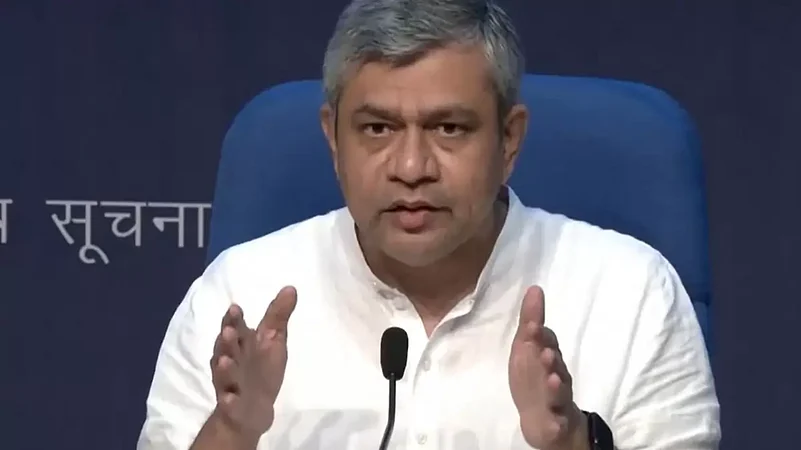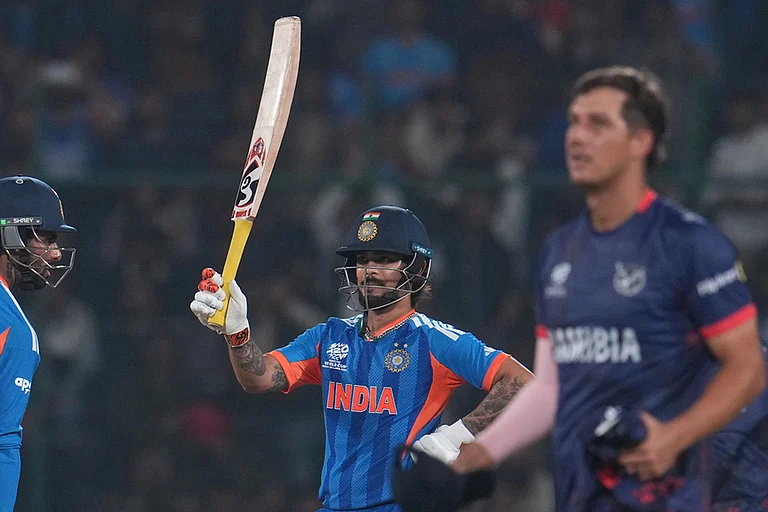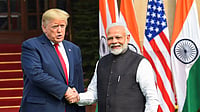Amid serious concerns over 'deepfake' videos, the government is all set to meet social media platforms on the issue, with IT Minister Ashwini Vaishnaw on Saturday asserting that safe harbour immunity clause will not apply if platforms do not take adequate steps to remove deepfakes.
Vaishnaw told reporters that the government had recently issued notices to companies on the deepfake issue, and while the platforms have responded, companies will have to be "more aggressive" in taking action on such content.
"They are taking steps...but we think that many more steps will have to be taken. And we are very soon going to have a meeting of all the platforms…
“Maybe in the next 3-4 days, we'll call them for brainstorming on that and make sure that platforms make adequate efforts for preventing it (deepfakes), and for cleaning up their platforms," Vaishnaw said on the sidelines of a conference.
Asked if big platforms like Meta and Google would be called for the meeting, the minister replied in the affirmative.
Vaishnaw also made it clear that the ‘safe harbour immunity’ which platforms currently enjoy under the Information Technology (IT) Act will not be applicable unless they move swiftly to take firm action.
"The safe harbour clause, which most social media platforms have been enjoying...that does not apply if they do not take adequate steps for removing deepfakes from their platforms," he said.
Internet platforms and social media platforms - the likes of Google, Facebook, X (formerly Twitter) and others - fall within the ambit of an intermediary. The safe harbour clause - under India's Information Technology framework - protects intermediaries from legal action on them for content posted online by their users.
Recently, several 'deepfake' videos targeting leading actors went viral, sparking public outrage and raising concerns over the misuse of technology and tools for creating doctored content and fake narratives.
On Friday, Prime Minister Narendra Modi cautioned that deepfakes created by artificial intelligence can lead to a big crisis and stoke discontent in society, as he urged the media to raise awareness about its misuse and educate people.
Deepfakes refer to synthetic or doctored media that is digitally manipulated and altered to convincingly misrepresent or impersonate someone, using a form of artificial intelligence.
Recently, a deepfake video with a morphed face of actress Rashmika Mandanna went viral on social media, raising a furore and prompting calls for regulation of technology to curb its misuse.
The original video was stated to be of a British-Indian influencer, whose face had been edited with Mandanna's face. Doctored video of some other actors have also reportedly surfaced on social media platforms.
Last week, the Centre issued an advisory to major social media companies to identify misinformation, deepfakes and other content that violates rules and remove those within 36 hours after being reported to them.
Minister of State for Electronics and IT Rajeev Chandrasekhar had said that deepfakes are a major violation and harm women in particular.
"Safety and trust of our Digital Nagriks is our unwavering commitment and top priority for the Narendra Modi Government.
“Given the significant challenges posed by misinformation and deepfakes, the Ministry of Electronics and Information Technology (MEITY) has issued a second advisory within the last six months, calling upon online platforms to take decisive actions against the spread of deepfakes," Chandrasekhar had said.
To another question on Apple threat notification issue, Vaishnaw said that Apple is doing its investigation, and so is CERT-In (government's cybersecurity agency).
"Apple is doing their investigation, and CERT-In is also doing investigation. I think we should be able to get some results," Vaishnaw said.
Nearly a fortnight ago, several opposition leaders had claimed they received an alert from Apple warning them of "state-sponsored attackers trying to remotely compromise" their iPhones and alleged hacking by the government, a charge Vaishnaw had categorically rejected but assured a thorough probe.


























